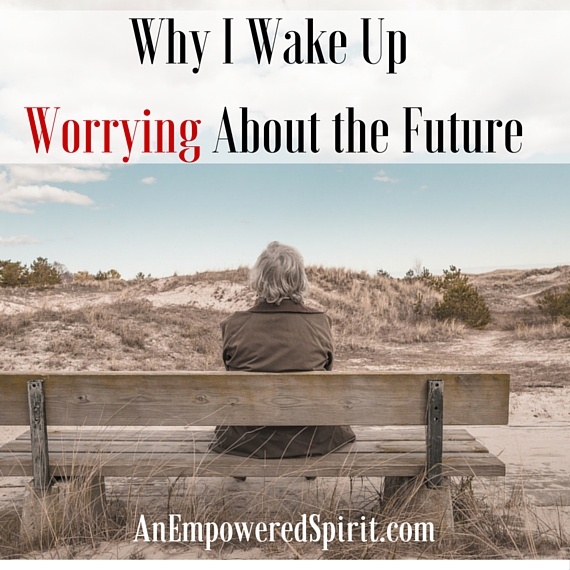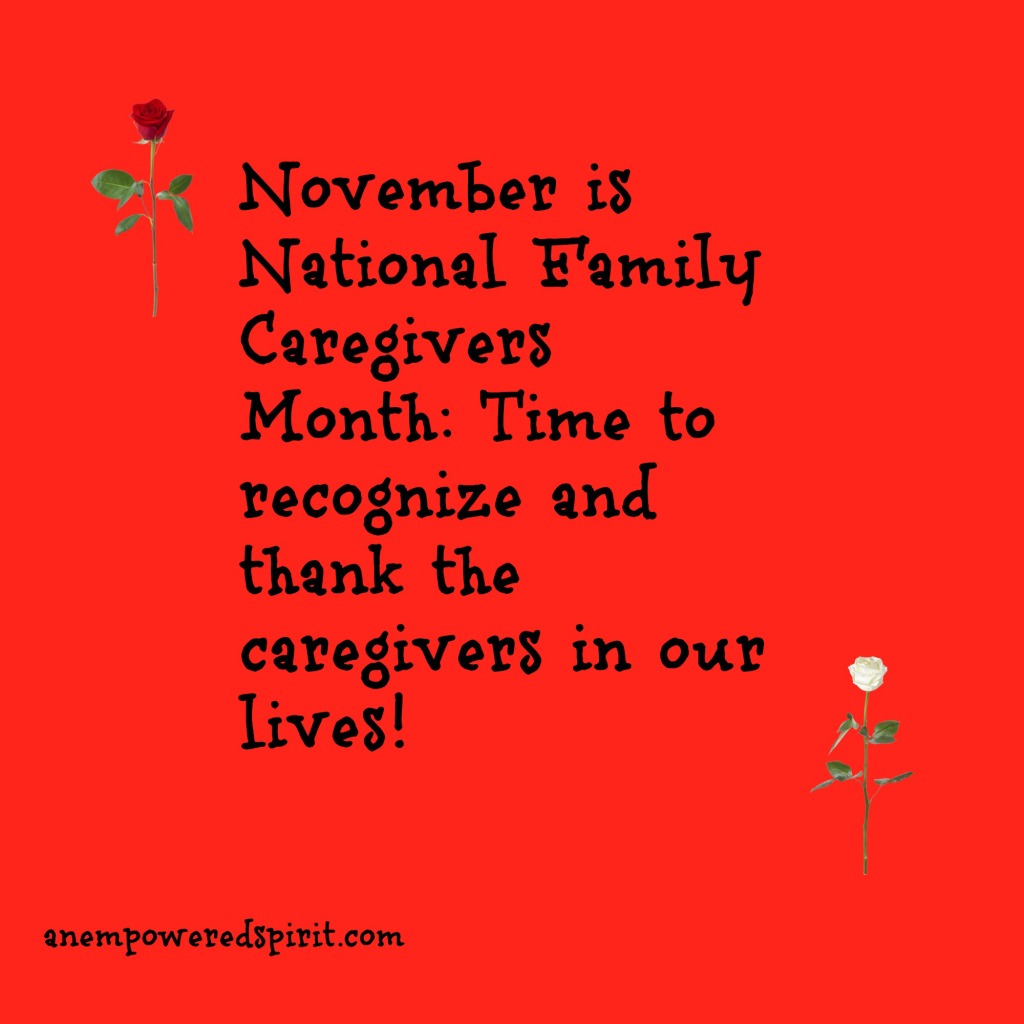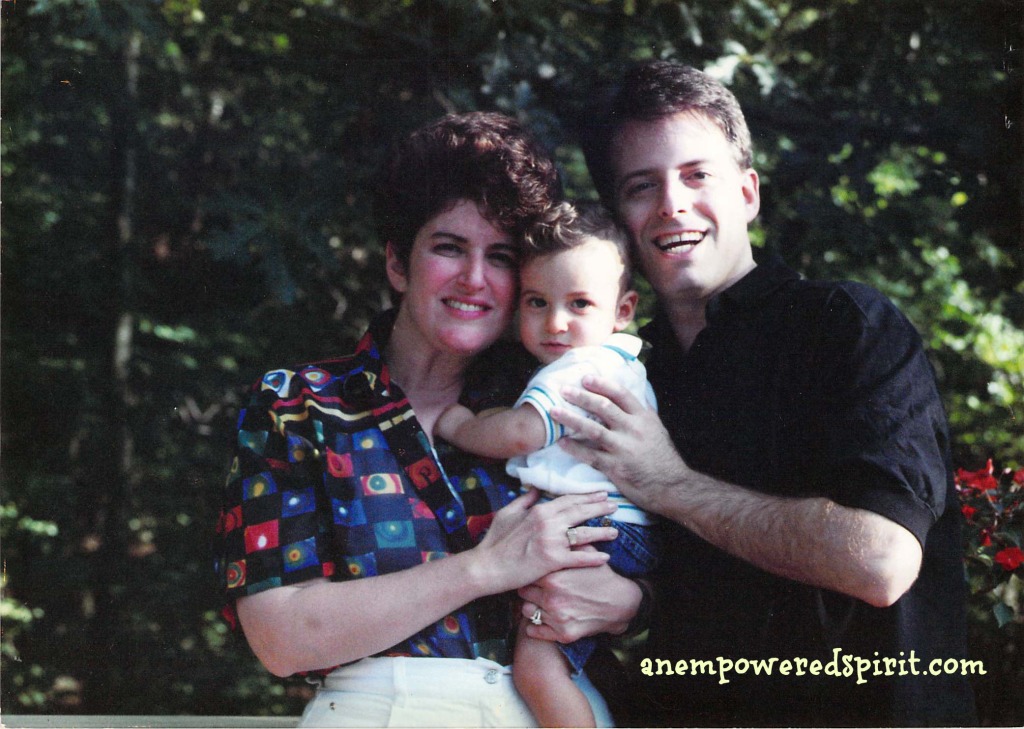Why I Wake Up Worrying About The Future
I woke up in a sweat of tiny beads pouring down my face, my feet dangling over the side of the bed and my nightgown tossed askew. I glanced over my right shoulder to check on my husband, worrying I disturbed him, but he was sleeping peacefully beside me.
It was startling to wake up so abruptly, particularly since my menopause ship sailed years ago. This wasn't the first time I woke up this way; over the past few months it's happened a lot.
I have the same two recurring nightmares..
The first one is something that happened a long time ago. When I was in the Brownies in first grade we visited a local nursing home at Christmastime to sing carols and deliver cookies to residents. Our troop leader told us some of the residents never had visitors, so the holidays was a great time to bring them some cheer. I looked forward to brightening their day.
That excitement was short-lived.
When my troop entered the lobby I was hit with a horrible stench of Clorox, mildew and cheap perfume. I can still smell it now. I'm (more than) ashamed to admit how frightened I was by the rows of old, disheveled-looking residents sitting in wheelchairs, some hooked up to oxygen or staring blankly into space. They scared me to death and I still remember how much I wanted to go home.
Shame on me.
Nightmare number two stems from something more recently. I was visiting someone in a rehabilitation facility when, on my way to the room, I saw several patients lined up in the hallway, alone in wheelchairs, waiting for an attendant to take them back to their room. I remember one woman in particular who looked despondent, her eyes dancing wildly and her limp body moving about as if she was going to scream. She had drool all over her face; her illness apparently leaving her unable to clean herself. No one to care for her. No one to care. That image haunts me.
These nightmares reliably visit me. Sometimes we dream ridiculous, nonsensical images but these make perfect sense.
We recently met with a certified financial planner who's also well versed in insurance coverage. The main reason I wanted to meet with him was something that was on my mind for years. Something I heard, read and talked about but desperately needed to hear the words I was dreading to hear.
My parents, in-laws and many of their friends purchased long term care insurance (LTC) several years ago. LTC is an insurance sold in the United States, United Kingdom and Canada that helps with the cost of long-term care beyond a predetermined period. It generally covers care not covered by health insurance, Medicare or Medicaid.
According to AARP:
"The phrase "long-term care" refers to the help that people with chronic illnesses, disabilities or other conditions need on a daily basis over an extended period of time. The type of help needed can range from assistance with simple activities (such as bathing, dressing and eating) to skilled care that's provided by nurses, therapists or other professionals."
Policies cost less if you purchase LTC when you're younger and in good health. Premiums are expensive and often go up over time. If your income goes down and you're unable to afford payments you could lose all you've invested in the policy.
I've seen up close what LTC can do for a policyholder if they become ill. It's the difference between night and day. Having LTC means continuing to live (as close as possible) to the way the patient is accustomed to, allowing for the support of therapist, nursing care and stays in hospitals or rehabs. It may even help defray the costs of living in an assisted living facility.
Depending on the type of policy you purchase it can mean the difference between receiving the care you need, or not.
When I think about this fear and anxiety creep in. Why? Because our financial advisor proclaimed the words I was dreading to hear:
"No insurance company will cover someone diagnosed with Multiple Sclerosis."
Thump.
My old pal, the National Multiple Sclerosis Society, added insult to injury when I read this:
"Long term care insurance is rarely available for purchase by an individual with MS after their diagnosis."
So there you have it. The reason for my nightmares. If I become ill and in need of costly medical care I may be one of those elderly ladies sitting in a hallway with no one to care for me.
For someone who talks about facing our fears this is my biggest one.
Another reason for concern? When I was diagnosed in 1986 doctors informed me I'd always live with the type of MS I currently have (relapsing-remitting or RRMS). Current research indicates:
"Most people who are diagnosed with RRMS will eventually transition to a secondary progressive course in which there is a progressive worsening of neurologic function (accumulation of disability) over time."
That scares the hell out of me. So what should I do? Remain calm and live a healthy lifestyle. Now, more than ever, diet and exercise plays an important role in my life, one that my future depends on.
That is not only important for me but for YOU as well!
My advice to you is to look into long term care insurance today. Consult with a certified financial planner or a reliable insurance broker. I wish you good luck and good health on your journey. May we all live a long, happy and healthy life.
Here are a few links to help you learn more about long-term care insurance. Do yourself, and your loved ones, a favor and take a look at them:
Kiplinger: Options for Covering Long-Term Care Costs
Kiplinger: How to Buy Long-Term Care Insurance
Consumer Reports: Long-Term Care Insurance
Forbes: 10 Questions to Ask Before Buying Long-Term Care Insurance









